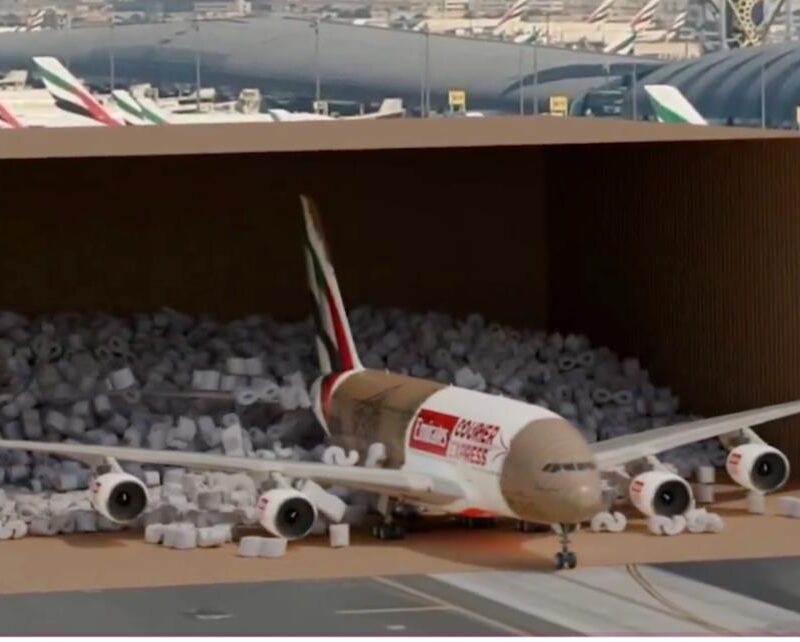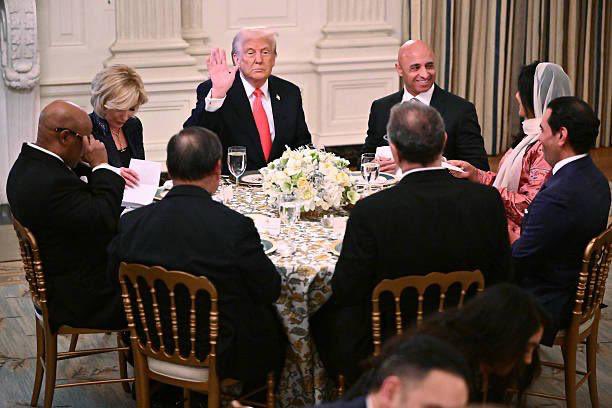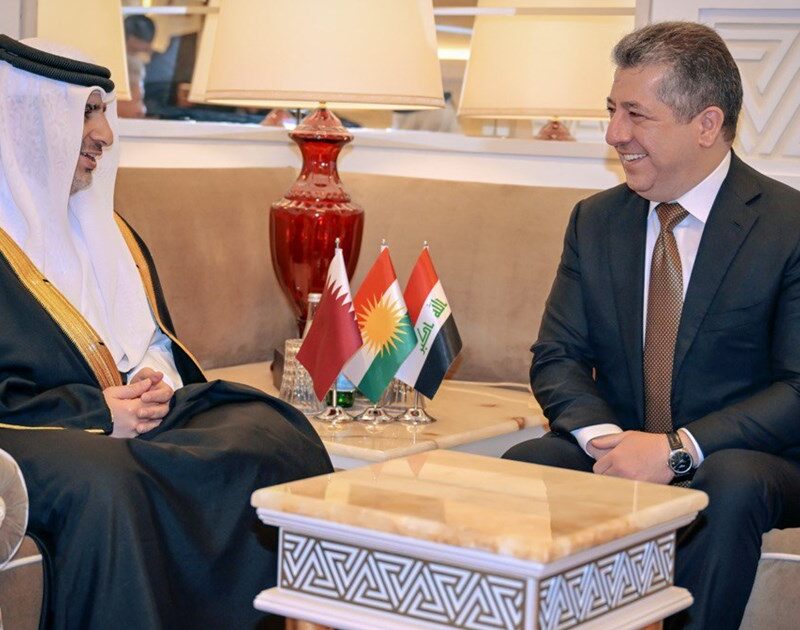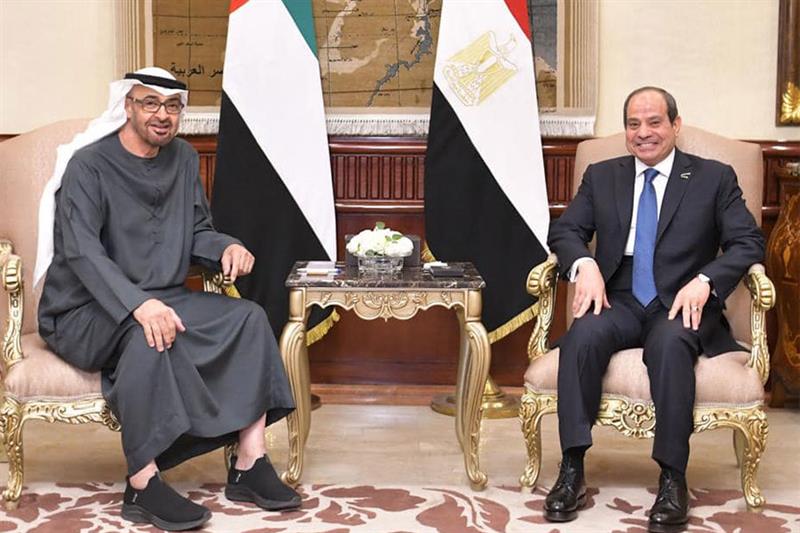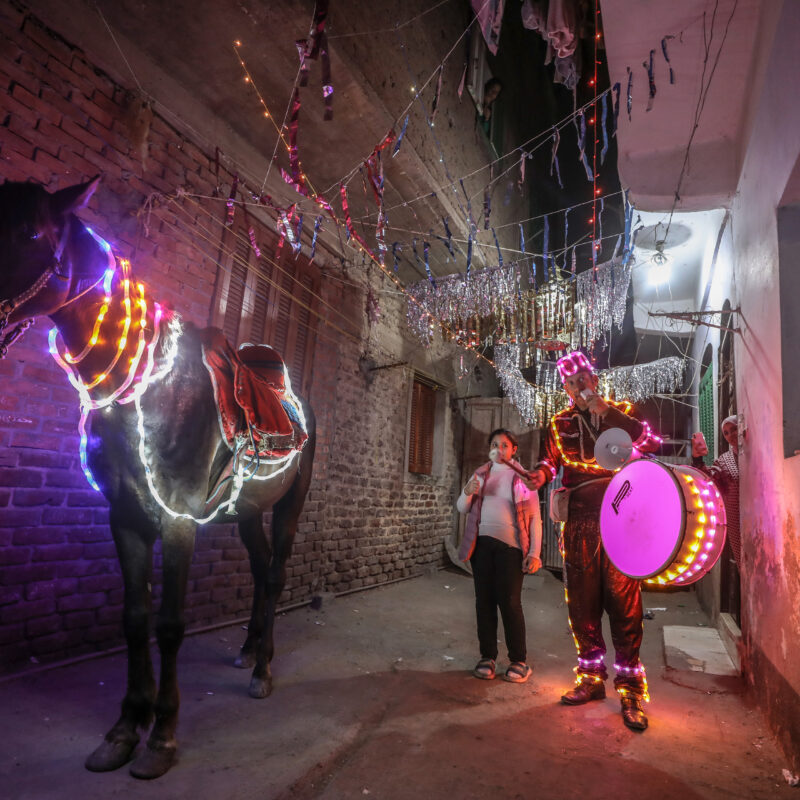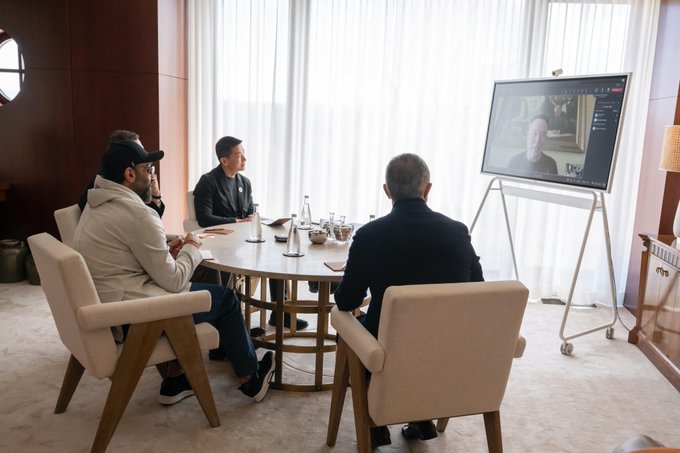The Weekly Circuit
👋 Good Monday morning in the Middle East!
A bid led by Abu Dhabi’s ADQ holding company to buy a controlling stake in The Phoenix Group, Israel’s biggest insurer, will face intensive scrutiny by government regulators before the $675 million deal can win approval. If accepted, the sale will represent the biggest purchase of Israeli assets by a UAE entity since the Mubadala sovereign wealth fund bought a 22% share last year in the offshore Tamar gas field for $1.1 billion. But the prospect of an Arab country becoming custodian of Israel’s largest pension funds, which are managed by Phoenix, has generated some blowback – notwithstanding the goodwill generated over the past two years by the Abraham Accords.
Leading the charge against the deal is Guy Rolnik, founder of The Marker daily financial newspaper, who called the proposed sale “dangerous and worrying.” In his weekly Hebrew column on Friday, Rolnik mused that Israel might just as well consider selling other top financial institutions to the Gulf states. “Why shouldn’t Qatar buy Bank Leumi, Bahrain acquire Clal Insurance and Dubai take Israel Discount Bank?” he wrote, concluding that the sale would be “an irresponsible and unprecedented act of folly.” By contrast, the two U.S. firms that currently control Phoenix, Centerbridge Capital and Gallatin Partners, issued a statement that the deal’s “combination of continuity and opportunity is exciting for all of Phoenix’s stakeholders, including shareholders, clients and the Israeli public at large.”
Overshadowing virtually all the news out of the region was Sunday’s thrilling World Cup final in Qatar, where Argentina defeated France on penalties, led by superstar captain Lionel Messi. Alongside the soccer, Qatar enjoyed a spotlight throughout the three-week tournament that may enhance its influence in regional and global affairs. While TV cameras often panned to French President Emmanuel Macron, who sat directly behind the Argentina goal, other celebrities were spotted at the finale, including Twitter owner Elon Musk, who watched the match with former White House adviser Jared Kushner.
Welcome to The Weekly Circuit, where we cover the Middle East through a business and cultural lens. Read on for the stories, deals and players at the top of the news. Please send comments and story tips to [email protected].
Spread the word! Invite your friends to sign up.👇
ADVANCED TALKS
Abu Dhabi’s ADQ in negotiations to buy Israel’s Phoenix Insurance
Abu Dhabi’s government-owned ADQ is in talks to buy control of The Phoenix Group, Israel’s biggest insurer, for at least $675 million — between 25-30% of the company. The negotiations with U.S. investment firms Centerbridge Partners and Gallatin Point Capital are at an advanced stage, according to a statement released last week.
Regulatory scrutiny: If closed, the deal would be one of the biggest since the United Arab Emirates and Israel normalized relations in September 2020 under the Abraham Accords. The Abu Dhabi sovereign wealth fund Mubadala bought a 22% stake in an offshore Israeli natural gas field last year for $1.1 billion. “The transaction will be subject to regulatory approvals, which will include a control permit from [Israel’s] Capital Market, Insurance and Savings Authority,” Centerbridge and Gallatin said in the joint statement.
Emirati funds: Under the proposed terms, the two U.S. firms, which together own 33.4% of Phoenix, would sell up to 30% of the insurer to a group of Emirati investment funds led by ADQ, a holding company owned by the emirate of Abu Dhabi. Phoenix was valued in the deal at NIS 9.2 billion (approximately $2.7 billion) according to its stock price, putting the acquisition at $675 million or more, Calcalist reported.
Free trade: Israel and the UAE have expressed wishes to develop closer financial ties, propelled in part by a free-trade agreement ratified last week that is expected to generate $5 billion in business a year within a few years. Mubadala distributed $20 million last year to six Israeli venture capital funds – Mangrove Capital Partners, Entrée Capital, Aleph Capital, Viola Ventures, Pitango and MizMaa – to invest in promising startups, according to the Wall Street Journal. All told, Mubadala’s investments in Israeli tech companies have amounted to $100 million, the Wall Street Journal reported in January.
To read the full story.
ANCIENT WATERS
Dead Sea rebounds from pandemic slump as tourist magnet for Jordan
SWEIMEH, Jordan – Jacqui Taylor Basker, an art historian from lower Manhattan, loved making annual trips to Jordan to teach college classes and visit the Dead Sea, where the desert air and mineral-suffused water provided relief from asthma and annoying skin conditions. After two years in which COVID-19 kept the Hashemite kingdom closed to most outsiders, Basker has now come back to soak up the winter sun at the lowest place on earth. She was unprepared, however, for the extent to which some of her favorite beaches have turned into a moonscape of craggy rubble and salt-encrusted sinkholes, Saeb Rawashdeh reports for The Circuit.
Underground cavities: “I was shocked,” Basker said. “The Dead Sea is a great Jordanian treasure and must be protected for everyone.” Because of damage caused by industry and government policy blunders, the Dead Sea has shrunk by approximately one-third over the past five decades. The retreating waters have left underground cavities that periodically cause roads, trucks and buildings to collapse into gaping holes.
Tourists return: The treacherous terrain, though, has not deterred visitors from abroad, who often arrive on European charter flights that deliver them to the desert spas and medicinal mud baths for which the Dead Sea is famous. During the first nine months of 2022, some 3.6 million foreign tourists visited Jordan, already beating government targets for the whole year. Dead Sea hotels reported 80% occupancy, rising to 96% on some weekends. “Regardless of the environmental issues at the Dead Sea, all the hotels are packed,” Hatem Bataineh, sales manager for the Crown Plaza hotel chain in Amman, told The Circuit. Before the pandemic, Jordan hit a tourism record in 2019, recording 5.4 million foreign visitors. That plunged to 1.2 million in 2020 when COVID-19 surfaced and borders closed around the world.
Natural wonder: Marking the lowest point on earth at 1,430 feet (430 meters) below sea level, the renowned body of water is bordered by Jordan, Israel and the West Bank. Jordan and Israel have reaped benefits from the Dead Sea’s distinction as a natural wonder, drawing tourists from around the world to float on its hypersaline surface – 10 times saltier than the ocean – and seek the dermatological benefits of its rich mineral content. The Palestinian Authority hasn’t managed to turn its 16 miles of Dead Sea coastline into a tourism moneymaker, in part because of disputes with Israel over granting construction permits, and partly because of the difficulty of attracting private investment to the conflict-hobbled West Bank.
River diverted: Israel, Jordan and the PA have also been stalemated in trying to stop the Dead Sea from disappearing and repair at least some of the damage that chokes the Jordan River, its only source for replenishment. Just last month, Jordan and Israel signed an agreement in Egypt at the U.N.’s COP27 climate conference, expressing their intent to build wastewater plants and reduce pollution in the river they share, restoring some of its flow to the Dead Sea. The once-rolling Jordan River has shrunk to just 7% of its capacity from the 1960s, when both countries diverted the water for national irrigation projects. In turn, the water level of the Dead Sea drops four to five feet per year, leaving it some 15% shallower than in 1970.
Fertilizers and cosmetics: The Dead Sea was a critical early source of state income for both Jordan and Israel, whose companies — ICL Group and Arab Potash Co. — became world-leading exporters of fertilizer and pesticide ingredients extracted from the water. Mud masks, exfoliating creams and cosmetics made from Dead Sea minerals line pharmacy shelves and duty-free shops in both countries. To harvest the lucrative minerals, both companies subdivided the lower portion of the Dead Sea into evaporating pools that run in parallel across the midwater border and built massive processing plants on opposite banks. Over more than 60 years of business, the water depletion from the industrial operations, together with the throttling of the Jordan River, has left broad patches of dry land so that the frontier can be traversed by vehicles.
Circuit Chatter
Sights on Saudi: Benjamin Netanyahu, Israel’s prime minister-designate, said he will push for normalization with Saudi Arabia, which didn’t sign on to the 2020 Abraham Accords.
Gas Find: Egypt discovered an underwater gas field off its coastline that may contain as much as 3.5 trillion cubic feet of the fuel and boost its position as an energy hub.
Palestinian Startups: The Bank of Palestine, along with the European Union, two investment funds and and the Spark NGO, launched a program to develop Palestinian entrepreneurship and provide money for startups.
Crypto Property: UAE developer Mag and CoinMena, a crypto asset service provider, are teaming up to facilitate real estate purchases in cryptocurrency.
E-Trucks: Admiral Mobility, a Dubai-based distributor of electric vehicles, plans to import 5,000 E-trucks made by China’s Geely for sale in the UAE and Saudi Arabia.
Closing Circuit
Qatari Cash: The Qatar Investment Authority led a $196.5 million funding round for Snyk, an Israeli-founded cybersecurity company based in Boston.
Blades Bid: Israel’s Fortissimo Capital expressed interest in buying jet-engine parts maker Blades Technology, due to be shut down by U.S. parent Pratt & Whitney.
Powering Neom: China’s Sungrow sustainable power company signed a memorandum of understanding to supply an energy storage system for Saudi Arabia’s trillion-dollar Neom city project.
Sharjah Ventures: Sheraa, a business accelerator run by the UAE emirate of Sharjah, plans to help 100 startups a year raise money and build their businesses.
Polluted Creek: A unit of Israel Chemicals will pay $33 million for an industrial accident that polluted a desert creek in 2017, the highest environmental penalty ever levied.
SPAC Whacked: Ion Asset Management, an Israeli investment firm led by Jonathan Kolber, dissolved its SPAC vehicle after failing to complete a $253 million merger.
On the Circuit
Atul Khosla resigned after a year as chief operating officer of the Saudi-backed LIV golf tour, which has challenged the PGA by recruiting star players with contracts reportedly topping $100 million.
Jeff Zucker, former president of CNN, will become CEO of a new $1 billion sports and entertainment investment firm backed by Abu Dhabi-based International Media Investments and New York’s RedBird Capital Partners.
Jaron Lotan was appointed executive director for the BIRD Foundation, which provides early funding for tech investments that involve U.S.-Israeli collaboration.
Ahead on the Circuit
Jan. 16-19, Dubai, UAE: iFX Expo Dubai 2023. Largest financial B2B conference, connecting top executives to large international firms. Dubai World Trade Centre.
Jan. 28-30, Tel Aviv, Israel: Abraham Accords Esports Peace Games. Teams from countries across the MENA region will compete in a digital video-gaming tournament for $82,000 in prize money. Shlomo Group Arena.
Jan. 30-Feb. 1, Tel Aviv, Israel: CyberTech Global Tel Aviv. Conference brings leading executives from computer security companies, senior government officials, investors from over 80 countries across the globe. Expo Tel Aviv.
Culture Circuit
Top Chefs: Dubai was declared a “culinary destination” by The New York Times, which cited the recent proliferation of restaurants awarded Michelin stars and top rankings from other food guides. Among the establishments cited as among the best were Tresind Studio, 3 Fils, Torno Subito, Boca and Alaya.
Decoding Manuscripts: The EU European Research Council awarded a 10 million euro grant to the National Library of Israel for the development of AI-driven technologies to analyze tens of thousands of handwritten medieval Hebrew manuscripts that have been digitized in its Ktiv project. The process, according to the library, will open new horizons of research in Jewish studies by making readable the often obscure handwriting found in antiquities.
Hanukkah Pride: This week’s Jewish holiday of Hanukkah features some groundbreaking festivities in Tel Aviv. The city’s LGBTQ Center is producing an eight-day “Winter Pride” fair, which will celebrate gay arts and culture, including a candle-lighting ceremony one night led by the trans community. Nearby at Dizengoff Center, the newly opened Lego Store will attempt to break the record for the largest Hanukkah menorah made from Lego pieces. The candelabra made from 130,000 blocks measures four meters (13 feet) high and four meters wide. A lighting ceremony using the Lego menorah will take place each night of the holiday.


